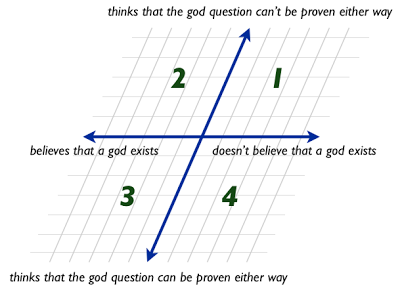The scripture of the day:
“We’re sensitive to the fluid dynamics of the campaign, but we have a game plan and a strategy,” said Mr. Obama’s campaign manager, David Plouffe. “We’re familiar with this. And I’m sure between now and Nov. 4 there will be another period of hand-wringing and bed-wetting. It comes with the territory.”
Democrats last week were in a panic over Palin, prompting the run on adult diapers that reverberated through the economy, inadvertently destroying Lehman Brothers, fomenting global warming, and hastening the eventual heat death of the universe.
I admit to indulging in a bit of the panic. One night I woke up at 3, worrying that Obama was going to lose this thing. Another night I dreamed that McCain had asked me to be his running mate. There I was thinking, “What am I doing on the Republican ticket?” (It has occurred to me since that I’d be a stronger running mate than Palin. I don’t have any foreign policy experience, but I do have a degree in International Relations.)
We Democrats do this. We fret and fume, and watch helplessly as the worst people in the world control the dialogue and capture everyone’s attention with the dumbest things. And we worry that, yet again, the scumbags will win.
And every time the polls show the race to be closer than we’d like, we get people telling us that there’s something wrong with what we’re doing. It always seems to be about… the good people. Yes, those simple humble folk who bow their heads and pray around the dinner table every night (with no fancy lettuce, mind you). They’re founts of wisdom, these common decent souls, issuing simple homilies as they hook their thumbs into their armpits and rock back and forth. And we Democrats abuse them mercilessly as we look down our urban noses at their pious ways. We’re losing… (wait for it!)… people of faith.
Here’s a prognosticator now. Scott Atran.
I’m an atheist liberal academic who strongly leans Democrat. But I’m stunned at how blind so many of my colleagues and soul mates are to the historical underpinnings of American political culture and the genuine appeal of religious conservatism for so many of our fellow citizens.
…
Among many Republican conservatives, one factor strongly correlates with patriotism and national security, is of even more overriding concern in daily life, and stands inseparable from love of country. Religion.
Well, it’s one thing to understand the appeal religion has for people, and quite another to be infected with it yourself. I only wish Democrats were more immune to it — they’re nowhere near as secular as Atran is suggesting.
Or this article from Jonathan Haidt. I’ve linked to him before.
When Republicans say that Democrats “just don’t get it,” this is the “it” to which they refer. Conservative positions on gays, guns, god, and immigration must be understood as means to achieve one kind of morally ordered society. When Democrats try to explain away these positions using pop psychology they err, they alienate, and they earn the label “elitist.” But how can Democrats learn to see—let alone respect—a moral order they regard as narrow-minded, racist, and dumb?
Now, how is this view different from the “Democrats need to learn some respect” meme seen here? Only in tone, not in substance. If we don’t tell the believers (you know, the ones who are trying to block certain kinds of marriage and birth control) that their views are perfectly valid and very nice, they’ll never vote with us.
As though they ever would. When did Republicans ever concede any ground to us? Now that they’re down in the popularity polls, are they abandoning parts of their social agenda? No-sirree! Are the radio hate jocks acting more conciliatory? With rare exceptions, no. Do we hear Republicans saying that they need to reach out to secular Americans and try to understand us? No, they still think we’re vermin, and they wonder whether we can have any sense of morality at all.
But that could be the point. The antagonistic approach (surprise!) doesn’t win friends. So the question Haidt, Atran, and other concern trolls pose is: Do you want to win elections or don’t you? It’s all very well for you to be right, but do you want to be president?
Well, I understand the concern. I’ve seen the disaster that political and religious fundamentalists have wrought and I’m not anxious for more. But I am not certain that it is worth winning elections at any cost, if part of that cost is abandoning rationality and sinking into the mire of fuzzy-headed spiritism. That’s an approach that’s guaranteed to make the problems we face worse, not better.
And suggesting that Democrats need to mend their ways is silly. How do conservatives magically know what individual Democrats think? How do they know your individual views? Have they asked you? Or are we just being stereotyped — again? I think the latter, and if you feel like modifying your behaviour so others won’t stereotype you, frankly you need to grow a set. If we all changed our ways tomorrow and acted like Atran, Haidt, et al wanted, how long would it take hardcore conservative fundamentalists to even notice? They haven’t yet noticed that Bush is an incompetent liar and they still think Iraq was a fine idea. The reality lag for these people is measured in geological time.
So don’t wait for them. Have your facts straight, pick your battles, and tell people (politely but firmly) when they’re wrong on factual matters. Realise that it may not be possible to be ‘right’ on moral matters — they often won’t be good at realising this — so you may need to state your values clearly, and stay open to change.
Sam Harris’s response to Haidt is my favourite:
How should we live? Is it wrong to lie? If so, why and in what sense? Which personal habits, uses of attention, modes of discourse, social institutions, economic systems, governments, etc. are most conducive to human well-being? It is widely imagined that science cannot even pose, much less answer, questions of this sort.
Jonathan Haidt appears to exult in this pessimism. He doubts that anyone can justifiably make strong, realistic claims about right and wrong, or good and evil, because he has observed that human beings tend to make moral judgments on the basis of emotion, justify these judgments with post hoc reasoning, and stick to their guns even when their post hoc reasoning demonstrably fails…. This reliable failure of human reasoning is just that—a failure of reasoning.
…
Haidt often writes, however, as if there were no such thing as moral high ground. At the very least, he seems to believe that science will never be able to judge higher from lower. He admonishes us to get it into our thick heads that many of our neighbors “honestly prefer the Republican vision of a moral order to the one offered by Democrats.” Yes, and many of them honestly prefer the Republican vision of cosmology, wherein it is still permissible to believe that the big bang occurred less than ten thousand years ago. These same people tend to prefer Republican doubts about biological evolution and climate change. There are names for this type of “preference,” one of the more polite being “ignorance.” What scientific purpose is served by avoiding this word at all costs?
And second is Roger Schank.
It is all very nice to come up with complex analyses of what is going on. As is often the case, the real answer is quite simple. Most people can’t think very well. They were taught not to think by religion and by a school system that teaches that knowledge of state capitals and quadratic equations is what education is all about and that well reasoned argument and original ideas will not help on a multiple choice test.
We don’t try to get the average child to think in this society so why, as adults would we expect that they actually would be thinking? They think about how the Yankees are doing, and who will win some reality show contest, and what restaurant to eat it, but they are not equipped to think about politics and, in my mind, they are not equipped to vote. The fact that we let them vote while failing to encourage them to think for themselves is a real problem for our society.
…
Republicans do not try to change voter’s beliefs. They go with them. Democrats appeal to reason. Big mistake.
Well, that’s pretty dark. But maybe (just maybe!) this time the good guys will win. I think so, but I’m an optimist. Obama beat the Clintons, he can beat McCain. Even if he doesn’t, you have to live with yourself more than other people do. So quit your hand-wringing and your bed-wetting. You’re already part of the community on the Web that’s waging the battle of opinions, and setting the agenda for the next Information Age, comment by intelligent well-supported comment. Take heart! Be your own freaky self. Vote.
That is all.





Recent Comments